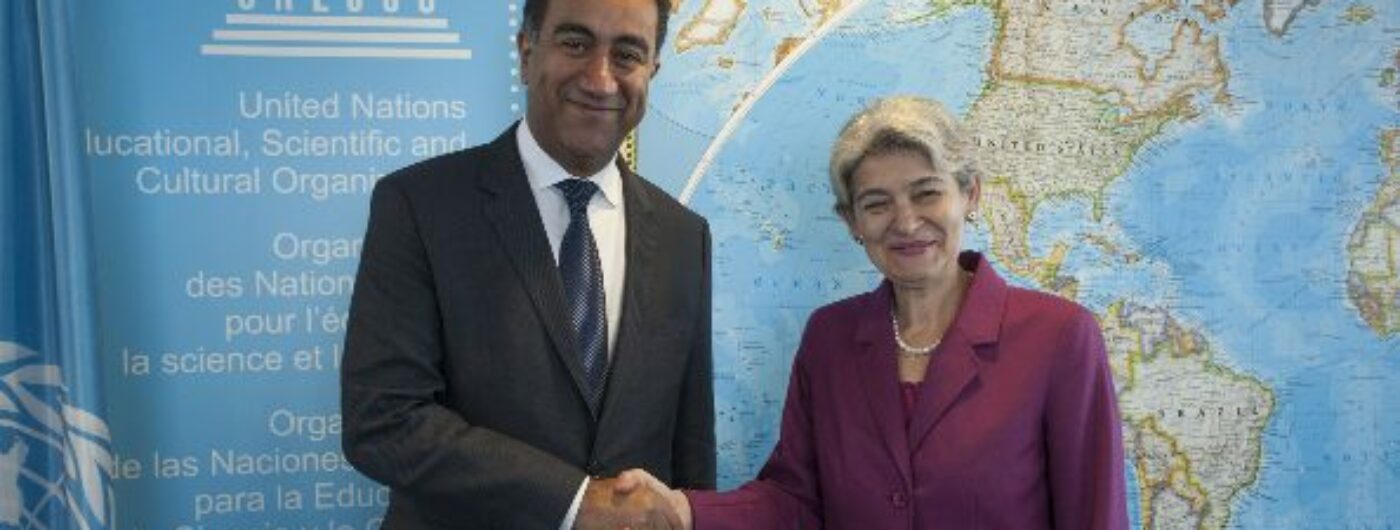
Union for the Mediterranean partners with UNESCO to undertake joint activities and programmes
© UNESCO / P. Chiang-Joo
Paris, 14 October 2015. The Secretary-General of the Union for the Mediterranean, Fathallah Sijilmassi, visited UNESCO headquarters today to establish a new partnership to promote regional tolerance and dialogue in the region and to present UfM’s activities before the Executive Board of UNESCO, chaired by Dr. Mohamed Sameh Amr, Permanent Delegate of Egypt to UNESCO.
Following their bilateral meeting and signing of the agreement, UNESCO Director General Irina Bokova declared: “This partnership comes at the right time on the right issues, inspired by the idea that the cultural diversity of the Mediterranean region is key to promote peace, to accelerate sustainable development, to foster a new narrative of tolerance and dialogue in a context of increasing extremism”.
The agreement focuses notably on the priority fields such as promoting cultural diversity for dialogue and development; fighting against extremism; promoting mutual respect amongst the people of the Mediterranean; promoting a culture of peace; promoting cultural heritage and under-water cultural heritage; scientific cooperation; women and youth employment; sustainable development and climate change.
Secretary-General Sijilmassi praised the agreement for capitalizing on the strengths of both organizations. “This Partnership Agreement represents a step forward toward further strengthening the institutional relations between UNESCO and UfM Secretariat, our partnership will not be only limited to the agreed priority areas but would rather be extended to every effort aiming at addressing the root causes of the multi-faceted challenges the region is currently facing, such as extremism and terrorism”.
The agreement creates the framework for UfM and UNESCO to exchange technical assistance as well as undertake joint activities and programmes regarding common areas of cooperation and interest. It aims to build on each partner’s core mission and respective networks to enhance the effectiveness of their development efforts.

